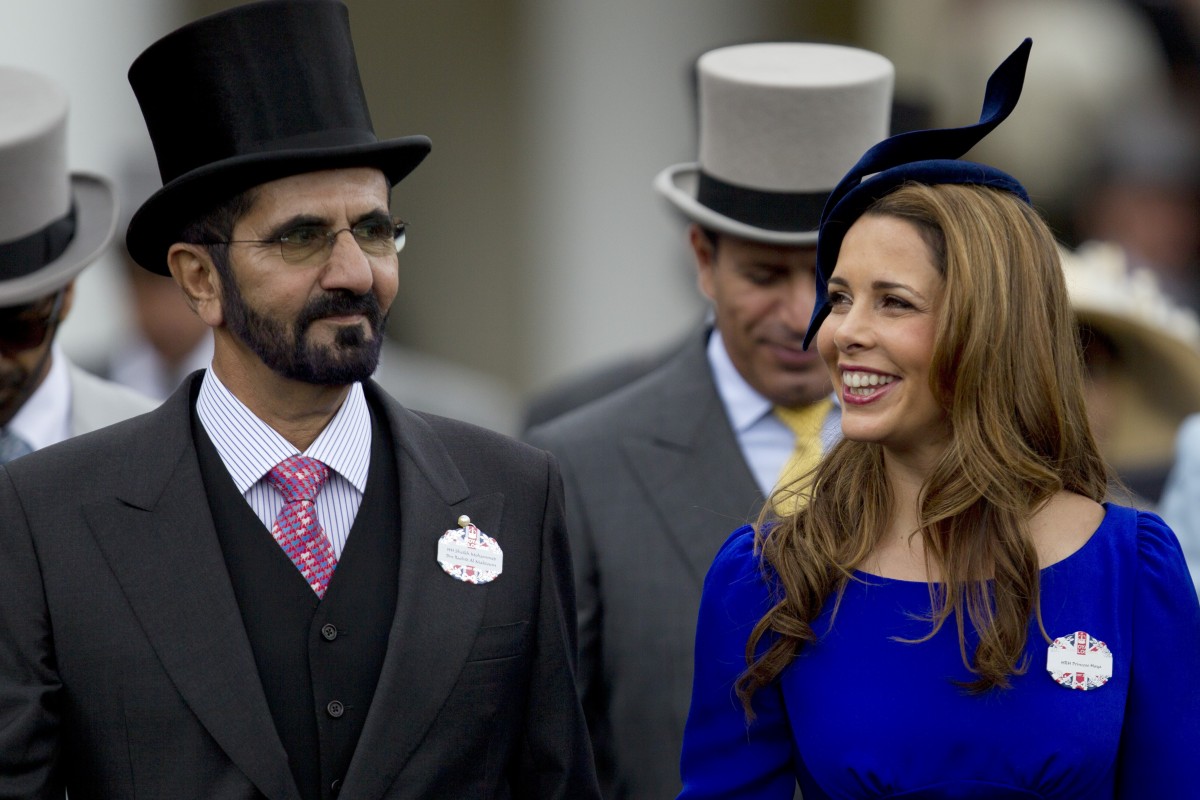One of the six wives of Sheikh Mohammed bin Rashid al-Maktoum, Dubai’s ruler, is divorcing him in a British court, no less. A British newspaper referred to the upcoming divorce between the Sheikh and his sixth wife, Princess Haya bint al-Hussein, the daughter of King Hussein of Jordan and his third wife, Queen Alia, as a titanic clash of cultures.
“The couple married in 2004 in a lavish ceremony in Jordan. And this is the man Princess Haya will now face across a courtroom in London next month as the warring couple embark on what looks set to be the most fiercely contested and costliest divorce settlement in British history, given his estimated £9billion fortune.
Princess Haya reportedly fled Dubai with her two children – and a £31million fortune – after discovering “disturbing facts” about her stepdaughter Princess Latifa, 33.
She travelled to Germany in May before moving to London, where she is said to be holed up in her £85million mansion on “Billionaire’s Row” near Kensington Palace.
She has applied for a “non-molestation” protection order against her husband and is said to “fear for her life”.
She has hired Royal favourite lawyer Fiona Shackleton, dubbed the “Steel Magnolia” after she secured Prince Charles’ divorce settlement from Princess Diana.
The Sheikh’s lawyer is Helen Ward, known as the “Grande Dame of Divorce”, who represented Guy Ritchie in his split from Madonna and Cheryl Cole in her divorce from Ashley Cole.”
Regardless of being born into wealth, no amount of money compensates for a woman born inferior to a man. She is owned by her father or male guardian at birth and subsequently married off – frequently against her will – to become her husband’s possession.
“The break up comes in the wake of an attempt by Haya’s stepdaughter Princess Latifa to escape Dubai last year. She was reportedly caught while fleeing to India, and is now alleged by friends to be held captive.”
Although Princess Latiffa is “missing”, some think she is dead.
“David Haigh, a human rights lawyer who has been leading the campaign to free Latifa, said: “I lived in Dubai for ten years. I was in a relationship with a member of the Abu Dhabi Royal family and saw the clash of cultures.
There is a big issue here. Under Sharia law the kids stay with their father but in Britain the mother has been seen to have more rights or the rights are equal.
Haya is going to need to prove to the courts that her kids are in danger. Otherwise he might win custody. The development of the city and the façade has gone at rocket pace, but the legal system hasn’t caught up since medieval times. You are dealing with a legal system which still says, as long as you don’t show any damage, it’s OK to hit your wife.”
The Express
In countries where Sharia law prevails the exodus of women to the West is common.
On January 8th of this year, the world once again was forced to pay attention to the calls for help from a Saudi woman. This time it was 18 year old Rahaf al-Qununm. She fled Kuwait where her family was vacationing.
With a ticket in hand for Australia, the plan was to land there and claim asylum.Except authorities stopped her during her layover in Thailand. Thai officials complied with the demands of the Saudi kingdom and promised to deport her back to Saudi Arabia because her guardian, her father, had reported her as missing.
Instead, she barricaded herself in a hotel room and refused to exit until the United Nations Refugee Agency took her claim for asylum. In the end, Al-Qunun won.
And she, like thousands of other Saudi girls, is risking everything to get out of a country that continues to enforce the male guardianship system.
“I’m one of the lucky ones,” said Al-Qunun in a press conference from her new adopted country Canada. “I know that there are unlucky women who disappeared after trying to escape and who couldn’t do anything to change their reality.”
RFI
It’s not just Saudi women at risk of abuse and death because of their inferior status. British born Gabriella Gillespie and her two sisters were sent back to Yemen by their Yemeni father as teenagers to be sold into arranged marriages after he had murdered their British mother. One sister committed suicide but Gabriella eventually escaped Yemen with her children after many years of abuse. Her harrowing story is told in her book A Father’s Betrayal.
Gillespie lived in poverty but faced the exact same dilemma as Princess Haya – how to leave your husband but take your children with you – when they belong to your husband. Both women knew their daughters would be sold (married) into a possibly unwanted and often abusive relationship, as young as nine years old. Haya is banking on proving abuse in a British court when she argues for custody of their two children next month.
We saw after Christchurch that Muslim women needed additional assistance when their husbands died. They were unused to appearing in public, could not drive and were unfamiliar with the day to day processes of western living. The Christchurch tragedy highlighted this important culture clash but political correctness means we sweep aside the discussion on the subject of cultural repression and abuse of women and girls. Eventually, this evil will out itself in cases of abuse in our courts but by then it will be too late for the victims.
At what point will we open our eyes to the second rate citizenship Islamic culture bestows on women and keep ignoring the potential abuses of what we regard as basic human rights right here in our own country?

